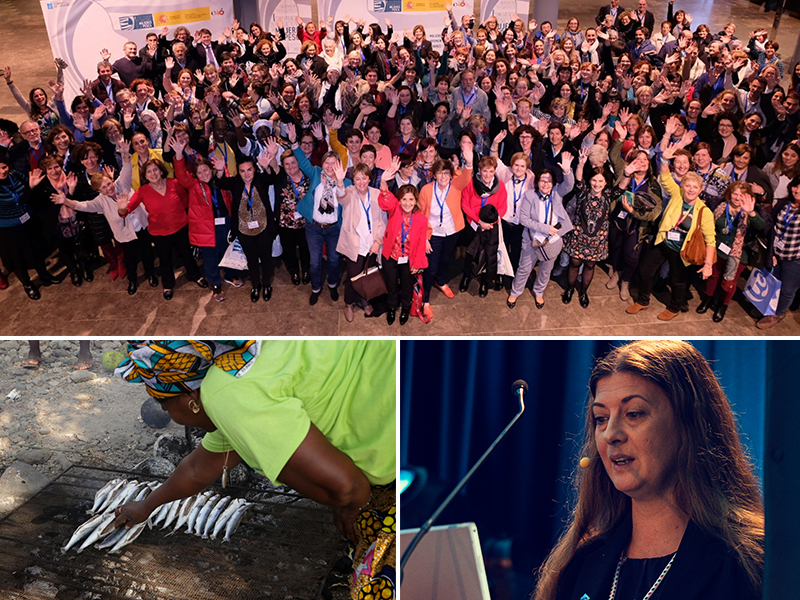Fishing is one of the world's most dangerous professions. But many people rely on the fishing industry for their livelihoods, especially women who often face difficult conditions. Women are present in all the activities of the fisheries and aquaculture sectors. During the first International Conference of Women in Fisheries, held in Santiago de Compostela, Spain (5 - 7 November), IMO delivered a presentation on its Women in Maritime gender programme. IMO highlighted how, over the last 30 years, the organization has facilitated access to high-level technical training for women in the maritime sector. This is a model which other participants such as the Food and Agriculture Organization (FAO) and the International Labour Organization (ILO) have agreed to emulate. Both FAO and ILO plan to work with IMO to develop project proposals to help increase women's recruitment and access to training in the fisheries and aquaculture sectors.
Participants also discussed various topics such as working conditions, the role of women in aquacultures and women's associations and leadership - and heard how IMO has successfully facilitated the establishment of women in maritime networks across the globe.
Following a series of workshops, the participants concluded the conference by adopting the Santiago de Compostela Declaration for Equal Opportunities in the Fisheries and Aquaculture sectors. The declaration pledges participants readiness to work together to develop a global strategy to promote equal opportunities and lists a number of necessary steps to achieve this. These include collecting data to identify gender gaps, improving working conditions, increasing women's access to training and fostering empowerment and leadership through the formation of women's associations within the fisheries and aquaculture sector.
